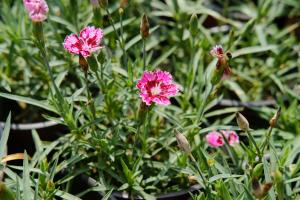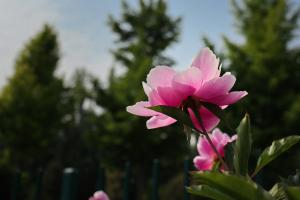Are Plants Supposed to Have Tap Water?
Water is an essential element for plant growth and development. However, not all water sources are created equal. Many people wonder, "Are plants supposed to have tap water?" The answer is not a simple yes or no, as several factors come into play when determining the suitability of tap water for plants.
The Composition of Tap Water
Tap water is a convenient and readily available water source in most households. However, the composition of tap water can vary significantly from region to region. Tap water is treated with chemicals, such as chlorine and fluoride, to make it safe for human consumption. These chemicals, along with other trace minerals and contaminants, can affect the health of plants.
The Effects of Chemicals on Plants
Chlorine and fluoride are added to tap water to kill harmful bacteria and promote dental health, respectively. However, these chemicals can also negatively affect the health of plants. Chlorine, in particular, can cause leaf burn and stunt growth in sensitive plants. Fluoride accumulation in the soil can make it toxic to plants and reduce their ability to absorb nutrients.
The Importance of pH
The pH level of tap water can also affect plant growth. Most plants thrive in soil with a pH level between 6.0 and 7.0. Tap water in some regions can be highly alkaline or acidic, which can affect the pH level of the soil. If the pH level is not favorable, plants will not be able to absorb nutrients effectively, and their growth will be stunted.
The Benefits of Tap Water
Despite its drawbacks, tap water can still be beneficial to plants in some ways. It is free of harmful pathogens and contains trace amounts of essential minerals, such as calcium and magnesium. These minerals can be beneficial for plant growth and development.
Alternatives to Tap Water
If you are concerned about the effects of tap water on your plants, there are some alternatives you can consider. One option is to use filtered tap water or let tap water sit in an open container for 24 hours before using it. This will allow the chemicals to dissipate and the pH level to stabilize. Another option is to collect rainwater or use distilled water. Rainwater is free of chemicals and has a neutral pH level, making it an excellent choice for plants. Distilled water is also free of chemicals, but it lacks essential minerals that plants need for growth.
Conclusion
So, are plants supposed to have tap water? The answer is not straightforward. While tap water can be beneficial for some plants, it can also contain harmful chemicals and affect the pH level of the soil. To ensure the health of your plants, it is always a good idea to test the pH level of your tap water and use alternatives if needed.

 how many times do yo...
how many times do yo... how many planted tre...
how many planted tre... how many pine trees ...
how many pine trees ... how many pecan trees...
how many pecan trees... how many plants comp...
how many plants comp... how many plants can ...
how many plants can ... how many plants and ...
how many plants and ... how many pepper plan...
how many pepper plan...































